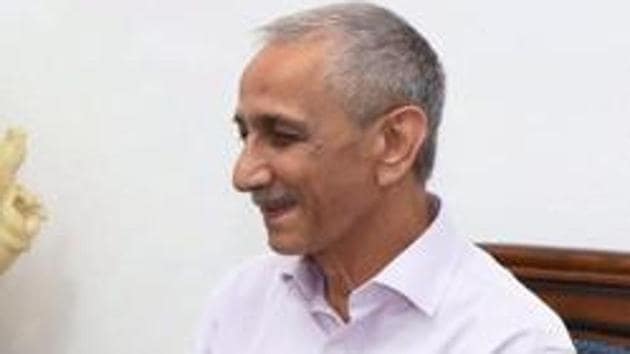Why the BJP has changed its stance and appointed an interlocutor for Kashmir
The ruling party had once said that the uprising in Kashmir would be crushed with full military might. This change of stance in appointing Dineshwar Sharma as interlocutor could either be a response to international pressure or the realisation that conflicts such as Kashmir cannot be resolved by military might
The Indian government appointing yet another interlocutor on Kashmir is a departure from the ruling BJP’s hawkish policy . The party had announced that the uprising in Kashmir would be crushed with full military might. It was perhaps to underline this policy that the Army Chief, Bipin Rawat, officially commended an Army Major for tying a civilian to a military vehicle.

The question then arises: Why has the government suddenly decided to change course?
One answer could be that the BJP has had a genuine realisation that conflicts, such as the one in Kashmir, cannot be resolved by military might. And despite what jingoistic TV channels say, the challenge in Kashmir is no longer that of an armed conflict. There used to be as many as 3,000 armed militants in the state at any given time in the 1990s and in the early years of the next decade. But the number has dwindled to a couple of hundred.
And now, since 2008, when Kashmir has witnessed what is known as the ‘summer unrest’, huge protest marches have been a common trend. Hundreds of ordinary civilians, including children and women, have been killed in firing by the paramilitary and police attempting to break up these protests. Of late, there’s also been a growing trend among civilians to engage security forces during gun battles to help militants flee.
Another reason for the change in stance could be the international community, which is concerned about Kashmir being a flash point between two nuclear powers. While the US and European countries have occasionally been urging India and Pakistan to resolve their disputes through talks, China has lately been causing discomfort to India by offering to mediate on Kashmir. Interestingly, the Indian government announced the appointment of Dineshwar Sharma as the interlocutor a day ahead of the US Secretary of State, Rex Tillerson’s visit to India and Pakistan.
Home Minister Rajnath Singh tried to assure the media at his press conference in Delhi that the appointment of the interlocutor was a sincere initiative. But many in Kashmir and even outside are unimpressed. They refer to the fate of earlier such initiatives. BJP stalwart and former Prime Minister Atal Bihari Vajpayee appointed two interlocutors, KC Pant and NN Vohra, one after the other but to no avail. Then came a non-governmental panel, headed by noted lawyer Ram Jethmalani. It was well-received by the separatist leadership, but failed to yield anything. Manmohan Singh, as prime minister, chaired a round-table conference in Srinagar that set up five working groups to study the political, economic and other aspects of the problem. But nothing changed. One of the groups recommended the transfer of a power project to the state. Even that didn’t happen.
Finally, after the summer unrest of 2010 came the three-member group of interlocutors, led by the veteran journalist Dileep Padgaonkar. Their report has been gathering dust for years. The late Padgaonkar wrote to a journalist-friend in Srinagar a few months before his death: “Kashmir, as you can well imagine, has been on my mind without respite. Someone asked me if I saw any light at the end of the tunnel. I said that I could not spot the tunnel in the first place. Do you?”
The central government has left it to the interlocutor, Dineshwar Sharma, to decide whether to talk to the separatist leadership. One question journalists failed to ask during Home Minister Rajnath Singh’s press conference was whether the talks will be held within the framework of the Indian Constitution or whether there will be no conditions at all.
If there is the condition of “within the Constitution”, it could prove counter-productive as it is unlikely that the separatists will agree to that. Unless, of course, Modi wants to chart a different course from his predecessors, including Vajpayee, who have been averse to striking a deal with Kashmir’s pro-India parties to the exclusion of the separatist platform.
rakib.altaf@htlive.com



